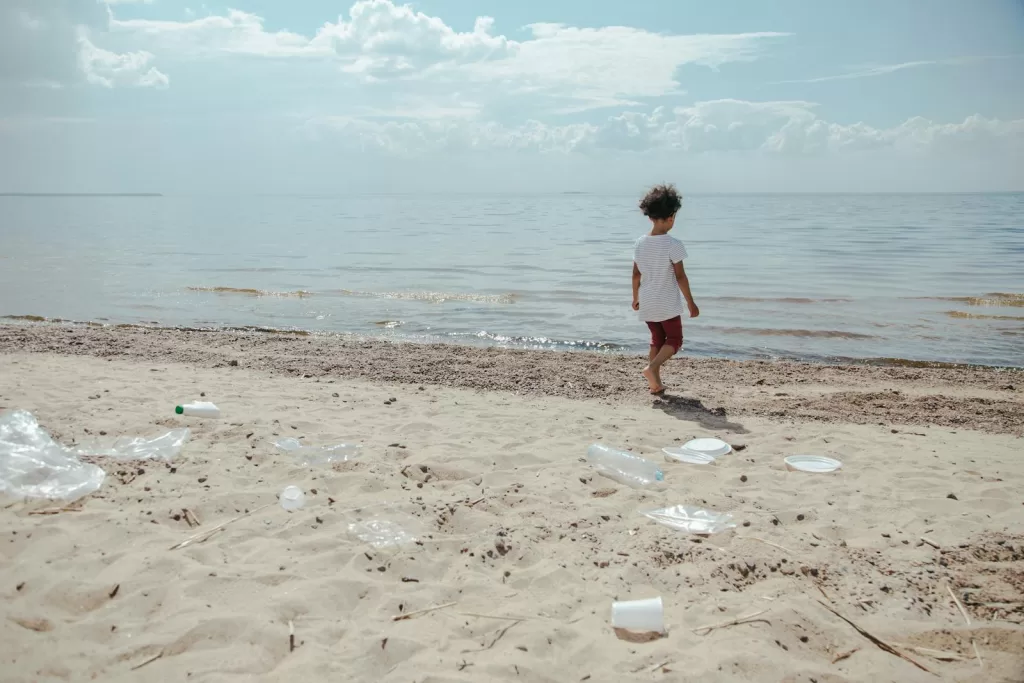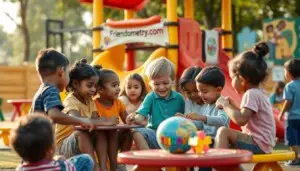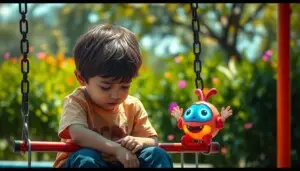Childhood loneliness isn’t just a fleeting emotion—it can shape a child’s emotional, social, and cognitive development in ways that last a lifetime. Studies reveal that children without meaningful friendships are at a higher risk of developing mental health issues such as depression, anxiety, and low self-esteem. As parents, understanding the profound impact of childhood loneliness is crucial for ensuring our children’s well-being today and in the future.
Key Takeaways
- Childhood loneliness can lead to long-term emotional and mental health challenges, including anxiety and depression.
- Social connections help children build confidence, resilience, and better interpersonal skills.
- Parents play a key role in fostering friendships and creating safe spaces for their children to connect with peers.
- Platforms like Friendometry provide practical solutions to help parents connect with other families and ensure their children thrive socially.
Why Childhood Loneliness Matters
Loneliness in children can manifest in various ways: withdrawal from peers, reluctance to engage in activities, or even behavioral changes like irritability or anger. Left unaddressed, these early signs can escalate, impacting their emotional and cognitive development.
Mental Health Impacts
Children who experience prolonged loneliness are more likely to face:
- Depression: A lack of meaningful friendships can lead to feelings of worthlessness and sadness.
- Anxiety: Lonely children often struggle in social situations, leading to avoidance behaviors that worsen their isolation.
- Low Self-Esteem: Without peer validation, children may develop negative self-perceptions that persist into adulthood.
Social Skill Deficits
Friendships are critical for teaching children empathy, communication, and problem-solving. Children who lack these connections often face difficulties in:
- Conflict resolution
- Teamwork
- Understanding social cues
These challenges can hinder their ability to form relationships in the future.
The Ripple Effects of Loneliness
The consequences of childhood loneliness extend far beyond mental health. They can affect a child’s education, career, and even physical health as they grow.
Academic Challenges
Lonely children may struggle with:
- Focus and Concentration: Emotional distress can distract them from learning.
- Participation: Fear of rejection might prevent them from engaging in group projects or classroom discussions.
- Motivation: A lack of social support can reduce their enthusiasm for school.
Long-Term Health Issues
Research links childhood loneliness to increased risks of chronic health problems, such as:
- Heart disease
- Weakened immune systems
- Obesity
How Parents Can Help
The good news is that parents can take proactive steps to combat childhood loneliness. Here are practical ways to support your child:
1. Encourage Social Activities
- Enroll your child in sports teams, clubs, or community events.
- Organize playdates or family gatherings.
- Use local platforms like Friendometry to find nearby families with similar interests.
2. Teach Social Skills
- Role-play common social scenarios to help your child navigate peer interactions.
- Encourage empathy by discussing how others might feel in certain situations.
- Praise positive social behaviors to build their confidence.
3. Create a Supportive Home Environment
- Keep open lines of communication with your child.
- Validate their feelings and provide reassurance.
- Foster a sense of belonging within the family.
4. Utilize Resources like Friendometry
Platforms like Friendometry are designed to connect parents and foster friendships for children in a safe, parent-led environment. This tool is especially helpful for children who are shy, neurodiverse, or new to an area.
| Solution | Benefit |
|---|---|
| Local Playdate Groups | Build friendships with families in your community. |
| Friendship Support for Special Needs | Tailored connections for children with unique needs. |
| Parent Networking | Strengthen your own support system. |
Real-Life Inspiration
“One friend can make a world of difference.” Studies show that having even a single meaningful friendship can protect children from mood disorders and improve their self-worth. By taking small, intentional steps, parents can ensure their child feels valued, supported, and connected.
FAQs
How can I tell if my child is lonely?
Common signs include withdrawal from activities, difficulty making friends, and changes in behavior like irritability or sadness.
Is Friendometry suitable for children with special needs?
Yes, Friendometry offers features tailored to families of neurodiverse children, providing safe spaces to connect with like-minded parents.
How long does it take to see improvements in my child’s social skills?
It varies by child, but consistent efforts like attending playdates, joining groups, and fostering friendships can show results in a few months.
Are there long-term benefits to addressing loneliness early?
Absolutely. Children who feel socially connected are more likely to thrive emotionally, academically, and physically throughout their lives.
Conclusion
Childhood loneliness is a challenge no parent should overlook. By fostering meaningful connections, teaching social skills, and utilizing tools like Friendometry, we can create a nurturing environment where every child has the opportunity to build lasting friendships. Together, we can make a difference—one friend at a time.








